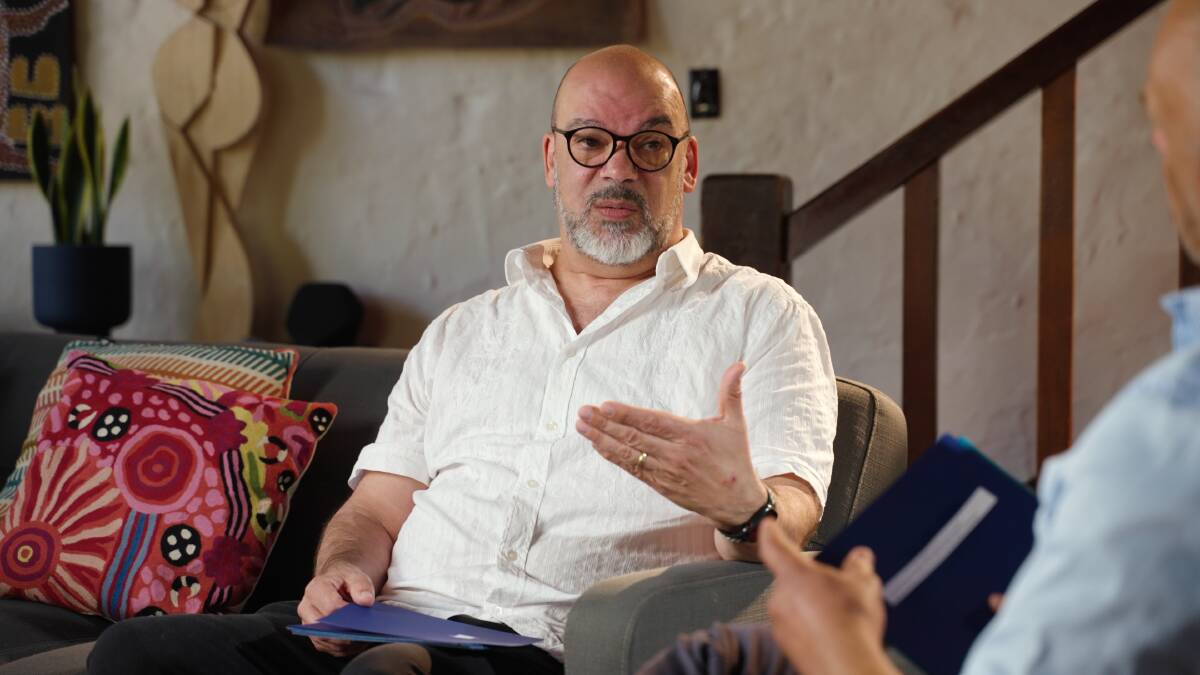"I've seen the trauma": Share your future health care choices today
This is branded content for Advance Care Planning Australia.
National Advance Care Planning Week, 21 - 27 March, is the perfect time to have a heart to heart with someone close to you.
Did you know that almost one in three of us will be unable to make our own medical decisions at the end of our lives?
But that doesn't have to be the case. Advance care planning offers all of us the opportunity to clarify our medical treatment preferences in advance, preparing ourselves and our loved ones in case there comes a time in a critical situation when we can't communicate our preferences.
For Gerald, that time came all too soon. Gerald developed what he thought was a common cold. Within 24 hours, he was fighting for his life. He was no longer able to breathe on his own, and doctors placed him in an induced coma as he suffered multiple organ failure.
Gerald had never imagined such a situation, so he'd never done any advance care planning. His family suddenly had to make life or death decisions on Gerald's behalf.
The questions that matter most
Gerald and his brother Paul have just participated in a new Advance Care Planning Australia video, 'The Questions that Matter Most'. They shared their story with us.
Explaining his sudden illness Gerald said he had no inkling of what was to come before the traumatic event.
"The day before I went into a coma, I took my dog for a long walk," he said. "I soon developed a runny nose - and the next thing I knew, I was in dire straits. I remember struggling to breathe. I was in the ambulance passing out, then woke up in hospital. Soon after, I lost consciousness."
For Gerald's family it was a huge shock. "The doctors didn't think Gerald was going to make it through the night - so we rushed to the hospital," said Paul.
"He was in intensive care for a couple of weeks. We didn't know from day to day if we'd see Gerald conscious again, and what kind of state he would be in.
"He wasn't responding to treatment. We realised that without those machines, he wouldn't be with us - and he couldn't stay connected to the machines forever. The doctors were telling us how precarious his situation was, and he was at risk of brain damage from oxygen deprivation."
The doctors finally gave the family the option of a different medication they wanted to trial.
"We felt it was the last roll of the dice, and we tried to figure out what Gerald would want," Paul said.
"We went ahead with the trial, the new medicine worked and finally, Gerald started to improve. But it wasn't until he regained consciousness and was unable to talk to us, that we realised what a long road ahead it was going to be, over many, many months."
"What were the risks you took with my life?"
Among the questions Gerald asks Paul in the video is about the risks they took with his life when making the difficult decisions they were confronted with.
"For example, did you know that because of the chance of brain damage, I would have to learn to speak and walk again? And did you think that I would have been okay with that?" he asks.
Paul says it was a tough question. "But our understanding of each other was paramount to this sort of decision making," he said.
Gerald says he is "forever grateful" to his family. "I mean, without some of those decisions I wouldn't be here talking," he says. "It's something I can't thank everyone enough for.
"Learning what everyone did at that time when I was in a coma, it really touched my heart. I wouldn't have changed anything, really, as far as the decisions that were made."
At the same time, Gerald says the rehabilitation was gruelling and traumatic.
"After the fact, I've seen the trauma that it has caused everyone and that would have been alleviated, I believe," said Gerald, "if there was some kind of plan put in place."
Get involved in National Advance Care Planning Week
By having your advance care planning in place you can ensure the medical care decisions you'd like to be made can still be heard even when you're not able to speak for yourself.
An important part of the planning is making sure you have the conversations with your family about your preferences. National Advance Care Planning Week is the perfect time to do that.

Document your values and preferences about your future medical treatment choices, and let those closest to you know what you would like to happen.
Next you need to ask your GP to sign your advance care directive, and then share copies with your substitute decision-maker, family, friends, carers and your doctors.
Once your advance care planning document has been signed, you can add it to your My Health Record so your wishes can be safely and securely accessed if they were ever needed in a medical emergency.
You, your authorised representative, or full access nominated representative can add an advance care planning document to your record. Find out how with this video.
See Gerald and Paul's story along with other stories in the new 'Questions that Matter Most' video.
Visit www.acpweek.org.au to access a free email starter pack and other information. You can also find face-to-face and online awareness raising events Australia-wide during National Advance Care Planning Week. For free, personalised advice, call the National Advance Care Planning Support Service on 1300 208 582 from 9am - 5pm (AEST) Monday to Friday.
This is branded content for Advance Care Planning Australia.



